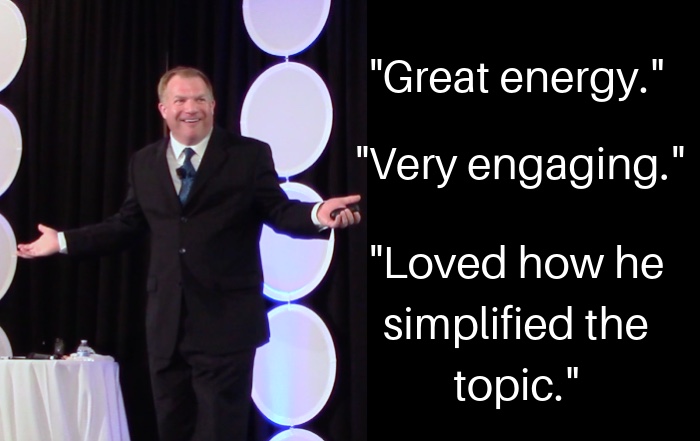 As a leader, you may need to learn how to ask better questions. The ability to get the right information is priceless and unfortunately, we’re not taught much about asking questions in school.
As a leader, you may need to learn how to ask better questions. The ability to get the right information is priceless and unfortunately, we’re not taught much about asking questions in school.
Sometimes the answer you need to hear is waiting to be said but won’t be said unless you engage the person in the right way. Consider these tips that can help you ask better questions:
Asking the Right People
I’m reminded of when I give my motivational keynote presentations at conferences and I go to check out an earlier session. The speaker may want make sure the big audience can hear him or her and will ask, “Can you hear me? Do I need the microphone?”
The problem with this question is you’re asking everyone. Very often, a person, who is in the front row, roughly ten feet away from you will give you a response and say, “Yes.” And that leads to the microphone not being used.
Meanwhile, a person in the back of the room, couldn’t even hear the question, and are not able to respond by saying, “I can’t hear you.”
When you need an answer, make sure you’re not just asking someone who is convenient. If your question involves people who work in the field, then ask one of them and not a person who works one office down from you. CBS showcases this perspective in its TV show, Undercover Boss.
Get Specific to Ask Better Questions
If you ask, “How is this program going?” you’ll likely get a basic response of “good” or “not good.”
It’s better to get more specific with your question. Similar but better ones could include:
- Has the program performed to your expectations?
- Do you have enough staffing or money to make the program successful?
- If you can improve one thing in this program, what would it be?
All of these examples go to a deeper level, respect a person’s expertise, while also demanding a better response.
You’re not required to act on any of the responses. If a program is underfunded, then you don’t have to pull out your credit card in that moment. You should acknowledge and thank the respondent for giving you the information because the information could be priceless.
Information or Affirmation?
Have you ever asked someone where they want to go for dinner but you’ve already made up your mind? This is an example of when you’re looking for affirmation, more than a response that goes against your thinking.
For leaders, this can become a bad habit. You may be making decisions based on the response of someone who isn’t really an expert on the subject. He or she may just be closest to you.
Getting information that runs counter to what you believe, may not be easy to hear. It’s like taking your car in for an oil change and finding out that you need a new engine.
But if you want to learn and make improvements, you need to be willing to hear all voices, even those who deliver messages you may not like.
Don’t Forget Sample Size
If there’s a big issue, make sure you’re asking more than one person about it. It takes more time to survey people who have different perspectives on the problem but it can dramatically improve the information you receive.
And from an employee engagement perspective, a willingness to ask questions to all levels of an organization tells people their opinions are valued and they need to be prepared to offer them.






